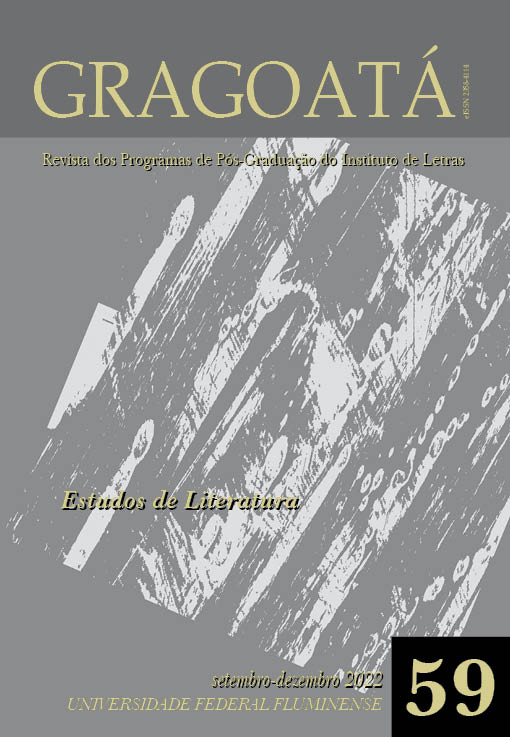World(s) apart – Borges Coelho’s Museu da Revolução and Writing in (and of) a Changing World
DOI:
https://doi.org/10.22409/gragoata.v27i59.54292Keywords:
world literature, postcolonialism, worldliness, poetico/literary performativity, fictional democracyAbstract
This article will depart from Said's position on the worldliness of texts and Pheng Cheah's reflections on postcolonial literature as world literature (2016) towards a reading of João Paulo Borges Coelho's 2021 novel Museu da Revolução. Borges Coelho's position on the articulation between history, politics, and literature (as literature; Rancière), as well as on the latter's aim of transforming the local place without losing sight of the universal, will provide insights into the ways in which the novel confronts the wordlessness of globalization. By staging a fictional democratization (Rancière), Museu da Revolução inscribes new ethico-political horizons as a "text that strives to generate the context", necessarily including those that have been forgotten from consensual (historical, political, memory) narratives. Lastly, the novel's positing of the transformative power of imagination will help flesh out the ways in which the "poetico-literary performativity" (Derrida) of texts can inscribe new ethico-political horizons and open up worlds (Cheah) when faced of the neoliberalist cancellation of the future (Berardi).
Downloads
Downloads
Published
How to Cite
Issue
Section
License
Copyright (c) 2022 Gragoatá

This work is licensed under a Creative Commons Attribution 4.0 International License.
Authors who publish in Gragoatá agree to the following terms:
The authors retain the rights and give the journal the right to the first publication, simultaneously subject to a Creative Commons license CC-BY-NC 4.0, which allows sharing by third parties with due mention to the author and the first publication by Gragoatá.
Authors may enter into additional and separate contractual arrangements for the non-exclusive distribution of the published version of the work (for example, posting it in an institutional repository or publishing it in a book), with recognition of its initial publication in Gragoatá.

Gragoatá is licensed under a Creative Commons - Attribution-NonCommercial 4.0 International.














